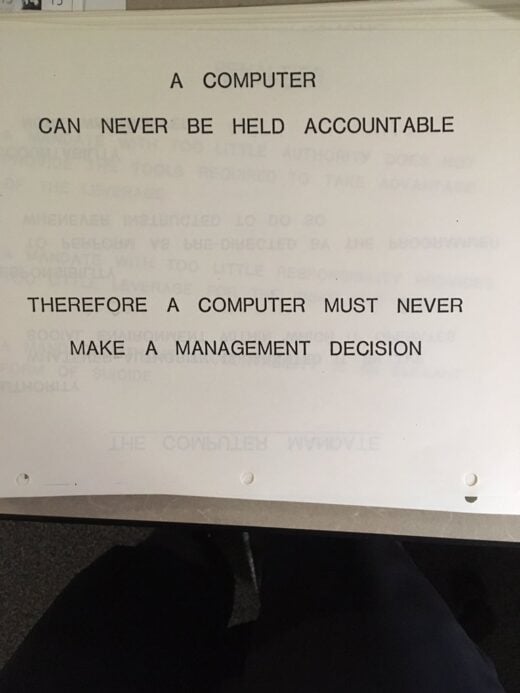I was reading through an NDA for an upcoming event. It’s pretty common boilerplate stuff, but a single word stood out to me in a way it has not in the past.
In this situation I’m the receiving party, or the person who is being presented with confidential information. Per this document I have the obligation to not share sensitive information outside my company, and within my company only with “officers, directors, agents, contractors, employees, or other representatives” who need to know the information and are also bound by a similarly strong NDA.
I know that ‘agent’ is a common term in legal documents. In this situation, ‘agent’ references a person who is authorized to act on behalf of the organization.
This word in particular stood out to me as a place where standard legal language potentially collides with the tech world.
“Agentic AI” is the hot new buzzword as more and more organizations are releasing AI agents. AI agents are programs that can assist with or automatically perform discrete tasks; the term is fuzzy and nebulous because it’s being marketed in a variety of ways.
I am not a lawyer, and I have questions.
Does the inclusion of the term ‘agent’ in existing contracts extend to AI agent-based software? (Probably not, but again: IANAL)
But what if Lattice’s short-lived plan this summer around digital workers (where they proposed “the responsible employment of AI” and “the moment when the idea of an ‘AI employee’ moves from concept to reality in a system and into an org chart”) comes to fruition? Is an AI agent a contractual agent then?
Does the degree to which an AI agent plays a role of augmenting employees vs. acting autonomously change the calculus of how much said agent is presumed to be authorized to represent the firm?
I’m curious where the world of software indemnification starts to collide with fiduciary relationships between principals and agents in contract law. Will AI agents operate under the guise of apparent agency, even if not express? Does anyone have resources on early thinking on this?
Will this maxim, attributed to a 1970’s IBM presentation, ever stop holding true legally? (Morally is another discussion altogether.) Can an AI agent be an accountable legal agent?


Alex Williams says:
November 5, 2024 at 2:58 pm
What is a computer? It’s as undefined as much as a server has changed in meaning. But the definition of a human has changed, too, if you consider a mobile device a robotic appendage, a brain that we hold or wear.
When considering humans, machines, or some hybrid of the two, the challenge becomes how agents apply to old language.